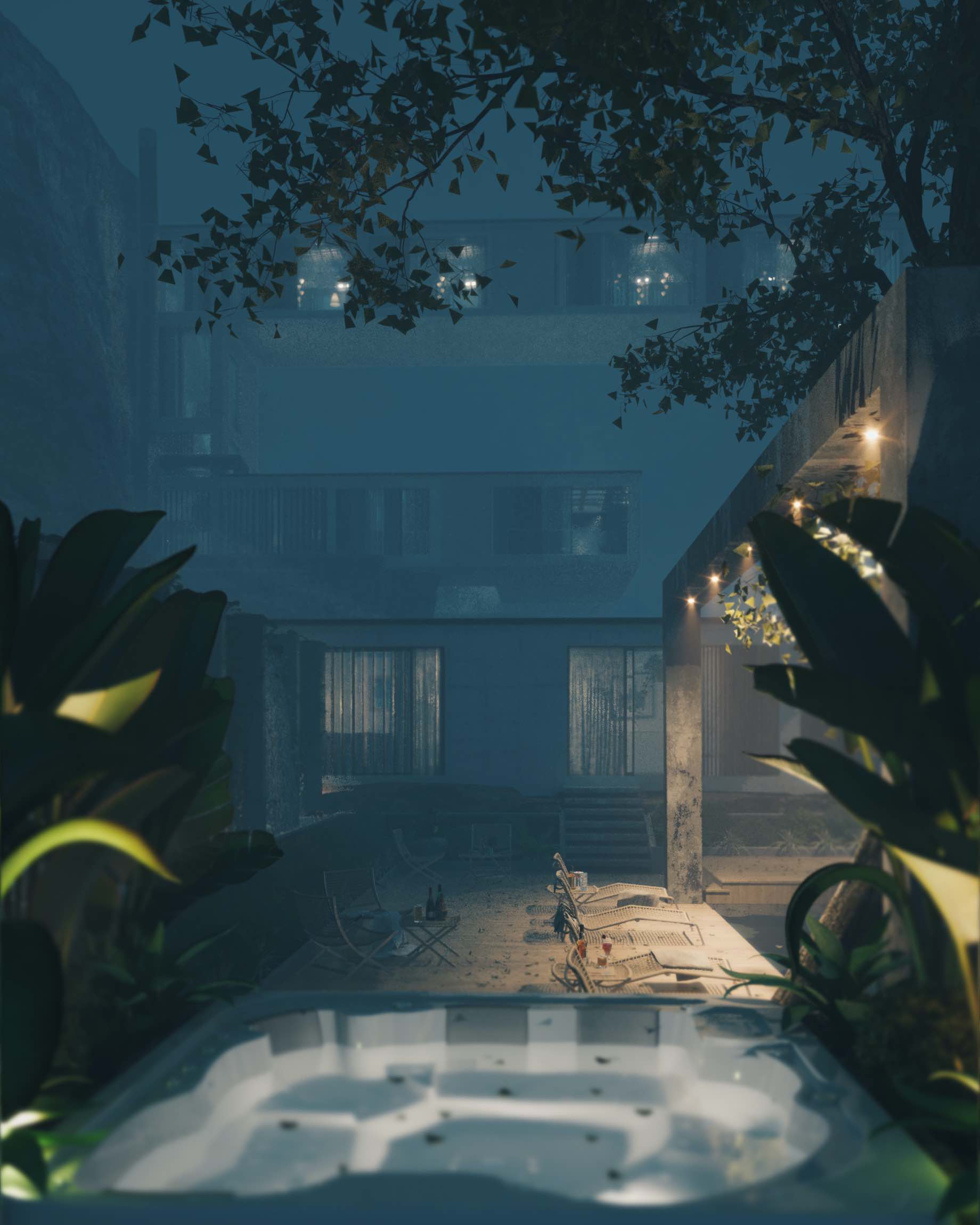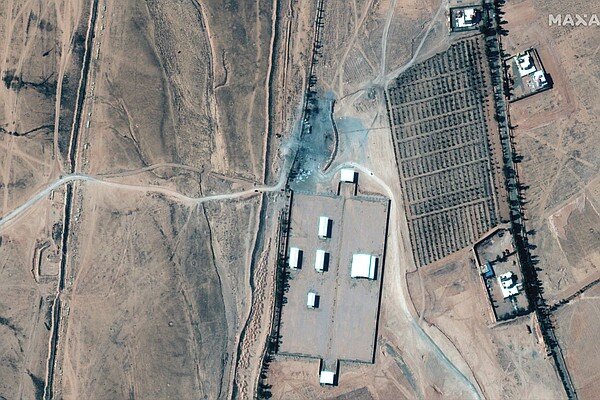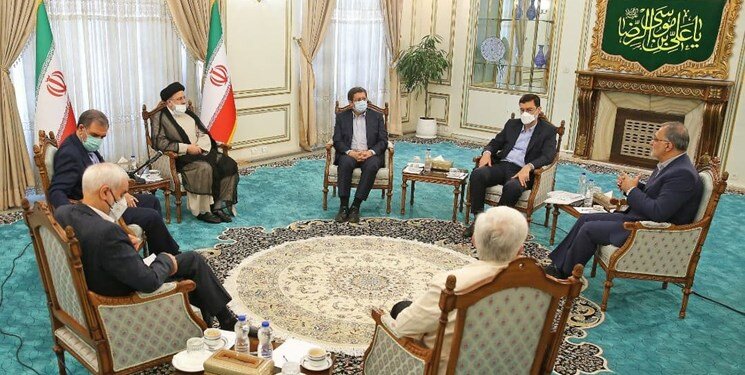TEHRAN – In a remarkable sign of unity and harmony, all former election rivals met with the Iranian president-elect to express readiness to cooperate with the new government in advancing the interests of the country, a move that stood in stark contrast to what happened in the United States during its November election.
Ayatollah Ebrahim Raisi set a new example for how a winner in the presidential election should treat his former election rivals in Iran. In a rare move in the usually poisonous Iranian politics, Ayatollah Raisi met with his former rivals in the June 18 presidential election, which gave him a landslide victory with more than 18 million votes despite the coronavirus pandemic, which reduced voter turnout by 10% globally according to some studies.
“We had a very good meeting with the presidential candidates, and we hope that such empathetic attitudes will lead to resolving the problems and undoing the knots in people’s lives,” the Iranian president-elect said, after the Wednesday meeting, which was held at Raisi’s office. All former presidential candidates - Amir-Hossein Ghazizadeh-Hashemi, Mohsen Mehr-Alizadeh, Alireza Zakani, Naser Hemmati, Saeed Jalili, and Mohsen Rezaei – attended the meeting.
Iran’s presidential race was held on June 18 and led to the victory of Raisi. Shortly before the start of the voting, Zakani and Ghazizadeh-Hashemi withdrew from the race in favor of Raisi while Mehr-Alizadeh announced his withdrawal in tacit support for Hemmati, who represented the reformist and moderate political groups at the ballot box. Following the victory of Raisi, his rivals rushed to congratulate him on his success without casting any doubt on the election’s integrity, a move that was appreciated by Ayatollah Seyed Ali Khamenei, the Leader of the Islamic Revolution, in a recent public appearance.
Raisi himself appreciated the political behavior of his rivals, extending invitations to them for a joint meeting, which took place on Wednesday. During the meeting, the former presidential candidates discussed the situation in the country and ways to solve the existing problems with the president-elect. They once again congratulated Ayatollah Raisi on his election win.
At the end of the meeting, the president-elect described his two-hour meeting with the candidates of the 13th presidential election as a very good meeting and said, “[our] friends in this meeting expressed their views and opinions and priorities that they think the next government should pursue this month.”
He added, “At this meeting, various solutions that exist to solve the country's problems, some of which were also discussed in the election debates, were discussed. Of course, all the friends are concerned about the country, the revolution, solving problems and untying the knots in people's lives, which is very important.”
Expressing hope for the continuation of such meetings, the president-elect emphasized, “The election campaign is over and now is the period of friendship, empathy, and cooperation to solve the problems of the people, which is a public concern.”
In addition to the former candidates, current officials also cooperated full force with the president-elect and his transition team, which is now busy making arrangements to pave the way for the next administration. Outgoing President Hassan Rouhani was quick to meet Ayatollah Raisi after the election. He went to the president-elect’s office at the Judiciary to offer congratulations and a desire to bring about a smooth transition. Raisi reciprocated the president’s cooperative stance by paying a brief visit to the presidential palace to transition.
Rouhani also instructed his officials to dully cooperate with Raisi’s transition team. To this end, Iran’s Deputy Foreign Minister Seyed Abbas Araqchi, who is leading the Iranian negotiating team in the Vienna talks, was instructed by Rouhani to brief President-elect Raisi on the latest developments of the Vienna talks aimed at reviving the 2015 Iran nuclear deal, officially known as the Joint Comprehensive Plan of Action (JCPOA). Mahmoud Vaezi, the Iranian president’s chief of staff, said the JCPOA is an important issue, and that’s why Rouhani instructed his diplomats to brief the incoming government.
Vaezi said, “As regards the JCPOA, which is an important issue, the president ordered Araqchi, along with the foreign minister, to meet with Mr. Raisi as soon as he arrives in Tehran, and to announce the progress and restrictions. The meeting lasted an hour and a half and everything was announced.”
Vaezi also said that the president had instructed all cabinet members to consult with Raisi’s transition team to make decisions that will affect the next government.
Foreign Minister Mohammad Javad Zarif also underlined the need to cooperate with Raisi, saying all should work with the president-elect. Speaking at the sidelines of the Antalya Diplomacy Forum, Zarif noted that Raisi is now the president-elect, and everyone should support and work with him. The Iranian foreign minister also praised Raisi and described him as a rational president who will run the country well.
The smooth process has earned praise from Ayatollah Khamenei, who compared the successful Iranian election with that of the U.S., which was marred by allegations of voter fraud, a bitter war of words, and even scattered violent protests.
In a meeting with Judiciary officials on June 28, the Leader of the Islamic Revolution called the “epic” presence of the Iranian people in the presidential elections “a strong blow to the enemies.”
In referring to the presidential election, he described it as being epic in the true sense of the word.
Noting that the efforts of the enemies to deny the greatness of the elections were futile, he stated, “The analysts who worked on this election understand what happened. Where in the world is it common for all opposing propaganda machines – the active, influential ones – to do their utmost to intimidate people in order to discourage them from participating in the elections? American and English media, as well as the media of some reactionary, dishonorable countries, focused all their efforts on our elections. Their own agents along with some treacherous Iranian individuals who are living under the American flag or the English flag and who are fed by them, began their work many months ago over the radio, television, satellite channels and on the internet. There were not just one and two of them. There were hundreds and even thousands of them that tried to push the people away from the elections.”
While stating that that the Guardian Council acted in accordance with religion and the law, Ayatollah Khamenei referred to attempts made by the opposing media to cause the people to be disappointed in the ballot box, “Well, despite such efforts, the people come and participate like this. Despite Corona— experts now estimate that at least 10% of those who did not participate refrained from voting because of Corona—people still participated, lined up early in the morning and voted. This was a serious blow by the people to the enemies and to those trying to create a boycott of the elections.”
The Leader of the Islamic Revolution described the U.S. election as “election fiascos” and said, “Those same scoundrels are criticizing our elections. An American official commented on the Iranian elections. Despite their own fiasco, which is still before them, they have found their tongues after several months and speak against our elections. But with their situation and the fiasco they created, they shouldn’t say even a single word about our elections.”
At the end of his statements, Ayatollah Khamenei pointed to the behavior of officials after the elections, describing it as a sign of calm and tranquility within the country. “The fact that the candidates who did not win congratulated the one who did win is a good sign. This is another divine blessing. Compare this with the Americans’ behavior after the elections when one of their candidates behaved very inappropriately toward the one who had won. You remember his statements and viewpoints. Look at their situation just a few months ago,” the Leader said, according to the Khamenei. Ir.
Ayatollah Khamenei was referring to the drama that erupted in the wake of the U.S. November presidential election, in which then-President Donald Trump warned of rigging the election months before it took place. And after the result was announced, Trump refused to concede defeat, casting doubts on the U.S. election integrity. Trump claimed Democrats “stole” the election by exploiting the vote-by-mail system, which allowed American people to avoid in-person due to coronavirus fears.
Trump’s “mobs” staged protests across the country to “retake” their country from “the Do-nothing Democrats.” The protests spiraled out of control in some cases, which prompted U.S. army deployments to many cities and towns, including Washington DC, to protect state buildings and facilities, a move that invoked scenes of civil war.
The pro-Trump protesters topped it off by storming Congress, creating a rare political crisis as Trump refused to openly condemn his supporters. Trump also refused to participate in the inauguration ceremony of his successor, gloomily leaving the White House.
Many Trump supporters still believe that their favorite president was kicked out of the White House due to a rigged election in which even dead people did vote. CNN reporter Donie O'Sullivan spoke with several supporters of Trump ahead of his first post-presidential rally on Saturday, many of whom told him they fully expect the real estate mogul to be reinstated before the end of the summer and warned of potential political violence in America if he is not, according to the Hill.
“He didn't lose, I know he didn't lose,” one woman told O'Sullivan.





![Why did the PA kill Nizar Banat? - Cartoon [Sabaaneh/MiddleEastMonitor]](https://i2.wp.com/www.middleeastmonitor.com/wp-content/uploads/2021/06/Cartoon-2.jpg?resize=476%2C333&quality=85&strip=all&zoom=1&ssl=1)




























